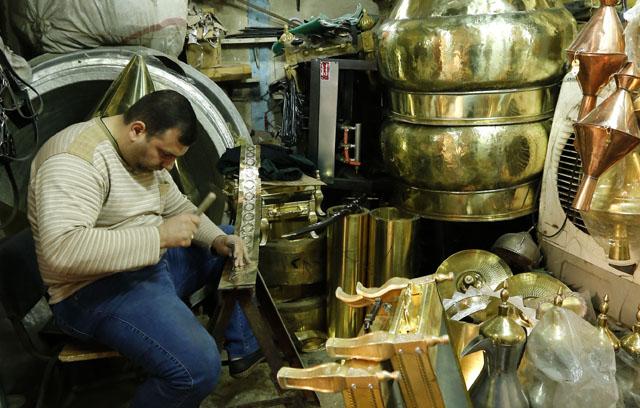You are here
Iraqis must be patient on economy — PM Abadi
By Reuters - Feb 12,2015 - Last updated at Feb 12,2015

BAGHDAD — Iraq's prime minister called on Thursday for "patience" while the government implements economic reforms that include restructuring of many state-owned companies, saying the plan would deliver growth and development.
Haider Al Abadi, who took office in September after Islamic State (IS) militants seized control of large parts of north and west Iraq, is under pressure to improve economic and security conditions while navigating a polarised political landscape.
Iraq is struggling to attract foreign investment and diversify its revenue sources away from oil, the price of which plunged in the second half of last year.
"We call on citizens to be patient. Success and development are coming," Abadi told an investment conference in Baghdad. "If we stick to the reform plan, soon there will be economic breakthrough."
Abadi said the government aimed to restructure some state-owned companies although he did not say which, when changes would happen, or whether it would entail privatisation.
"We want these companies to be more efficient and contributive to the Iraqi economy," he added. "The government has no intention to get rid of the workers in these companies."
Many state firms have barely functioned since the US-led invasion to topple Saddam Hussein in 2003 and many related to the military have been shut down.
Iraq's economy, which gets about 90 per cent of its revenues from oil, was battered last year by plummeting global oil prices and the land grab by IS which prompted big spending on the military and displaced populations.
Defence alone is expected to take up 20 per cent of 2015 spending in a budget passed by parliament last month which includes a deficit of 25 trillion dinars ($22 billion) to be financed through borrowing.
The government also has to ensure more than 5 million state employees are paid.
Finance Minister Hoshiyar Zebari has said Iraq plans to use its Special Drawing Rights to raise financing from the International Monetary Fund (IMF).
A senior IMF official told Reuters the financial institution was open to providing additional funding to the war-torn nation.
"They certainly could [ask for more money]. So far they haven't... We had a programme before with Iraq. It's their call," the official said.
When extending emergency loan programmes to countries, the IMF has often pressed them to introduce economic reforms such as restructuring state finances.
Related Articles
BAGHDAD — Iraq's political blocs will likely resist Prime Minister Haider Al Abadi's attempts to replace politically appointed ministers wit
Iraqi Prime Minister Haider Al Abadi said Monday he will use a visit to the United States to seek increased air support and arms deliveries to aid Baghdad's battle against militants.
BAGHDAD — Iraq's parliament dismissed the finance minister after a no-confidence vote on Wednesday, a move that risks further upsetting the















